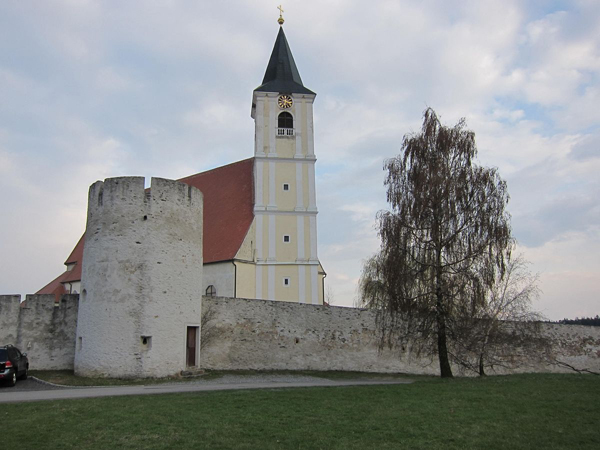“Systems for Education, Engineering, Service and Sustainability”: Proceedings of the Fifteenth IFSR Conversation
SEA-Publications: SEA-SR-28
Institute for Systems Engineering and Automation
Johannes Kepler University Linz, Austria
ISBN 978-3-902457-28-8
Welcome to the IFSR Conversation 2010!
Like all organizations today, the IFSR is challenged to stay current with the ever-evolving needs of its members and stakeholders. The First IFSR-Congress in Kobe, Japan, in November 2004, the Fuschl Conversation 2006, and the Strategy Day 2010 all helped to create a new vision for IFSR’s position, role, and mission in this continually more complex, more interdependent and more collision-bound world. A part of accepting this challenge meant the IFSR increasing its role in promoting Systems Thinking.
As one of our strategic levers we identified the bi-annual Fuschl Conversations. We saw them as a nucleus of international interactions and strategy formulation for the future allowing IFSR to achieve the new goals and challenges.
As a consequence we put more emphasis on identifying relevant topics with respect to practicability and usability for the Systems Movement at large and for IFSR as one of the key players.
Another change was to try to make the Conversations more effective by providing a more professional, workshop-like infrastructure which was not sufficiently present in the traditional Fuschl set-up: we decided to look for a new location. It should be nearer to Vienna to enable participants in the IFSR Board Meetings and in the EMCSR-Congress to reach the location more easily.
After a considerable effort for searching I was lucky to find Kloster Pernegg, which satisfied our demands on the Conversation location much better. The village of Pernegg is located approx. 100 km northwest of Vienna. It can easily be reached by car in 90 minutes and by train in 2,5 hours from the center of Vienna center and Vienna Airport. What is now a seminar hotel is located in the buildings of a former renaissance monastery which looks back at a history of more than 850 years. It was completely modernized and refurbished in the 90s. It is embedded in a wonderful, almost untouched
landscape. This location provides a focused and inspiring work atmosphere. Details on the location can be found at www.klosterpernegg.at.
As a consequence we could not use the name ‘Fuschl Conversations’ any more: the decision was to call them henceforth ‘IFSR Conversations’.
After considerable discussion the following four basic topics were chosen
- Creating Systems Education Curricula
- The Science of Service Systems
- Learning Systems for Sustainability
- Systems Science and Systems Engineering
Consistent with the rules for Conversation, the team modified their topics in relation to the course of their deliberations.
This booklet contains the proceedings of the 2010 IFSR Conversation in Pernegg and summarizes the findings of the discussions.
The proceedings open with a short review of the history of the Conversations from their beginning in 1980 until the present Conversation. This is followed by the reports of the four teams (some of them augmented by individual papers contributing to the team’s findings. Some overall information about IFSR concludes the booklet.
The proceedings are also available for reading and downloading at the IFSR’s homepage at http://www.ifsr.org. Pictures of the Conversation, showing both the hard work and the ambience can also be found there.
Looking at these proceedings I am proud that we can show that the IFSR – with the help of the IFSR Conversations – will be able to even better serve the systems community and thus promote systems thinking.
I want to thank the Conversation’s Programme Chair, Gary Metcalf, for supporting and streamlining the selections process for the topics and candidates. My thanks also go to all participants in the Conversation for their effort and especially to the Team leaders: Ockie Bosch, Kambiz Maani, David Ing, Alexander and Kathia C. Laszlo, Yoshi Horiuchi, and Gordon Dyer.
I enjoyed being in Pernegg as part of the Conversation and I believe that we achieved at least a small contribution to the world of Systems Thinking.
Gerhard Chroust (Austria)
Secretary General IFSR
April 2010
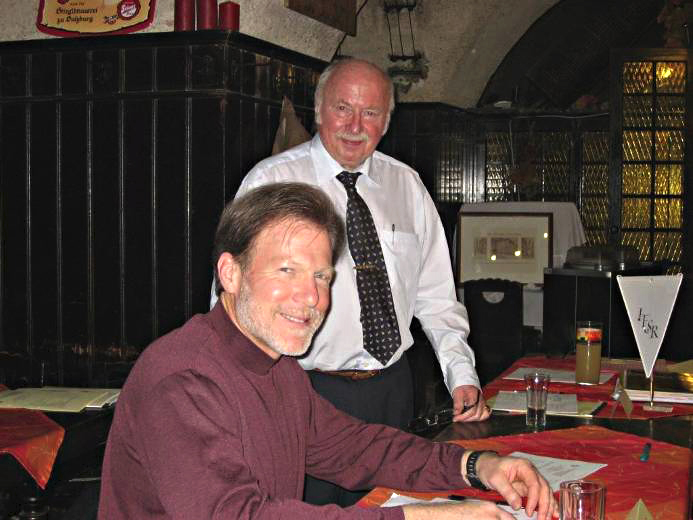
Gary Metcalf, Gerhard Chroust (editors), Proceedings of the IFSR Conversations 2010, Pernegg, Austria
The aim of the Fifteenth IFSR Conversation in 2010, held in Kloster Pernegg, Austria in April 2010, was to continue the tradition that had been established in 1980, but with a renewed focus on coordination between the participating teams. The overarching theme for the conversation was how to support and disseminate systems research and education. The deliberations the 4 teams supported the over-all theme in different ways
• systems education and curricula
• learning sustainability of systems
• linking systems thinking to service systems
• system thinking in systems engineering.
The Conversation was able to build on previous and ongoing work within the member organizations of the IFSR. The outcome of this Conversation, while at a high conceptual level, also supports and encourages further practical applications through individual member activities.
The Conversations essentially followed the successful scheme used in earlier Fuschl Conversations as devised by Bela H. Banathy. 28 renowned systems scientists and systems practitioners from 9 countries took part in this 5-day cooperative effort. The outcome of the conversation is summarized in 4 team reports plus several contributed papers. A short description of the IFSR’s activities closes the proceedings.
Table of Contents
- Welcome to the IFSR Conversation 2010!…5
-
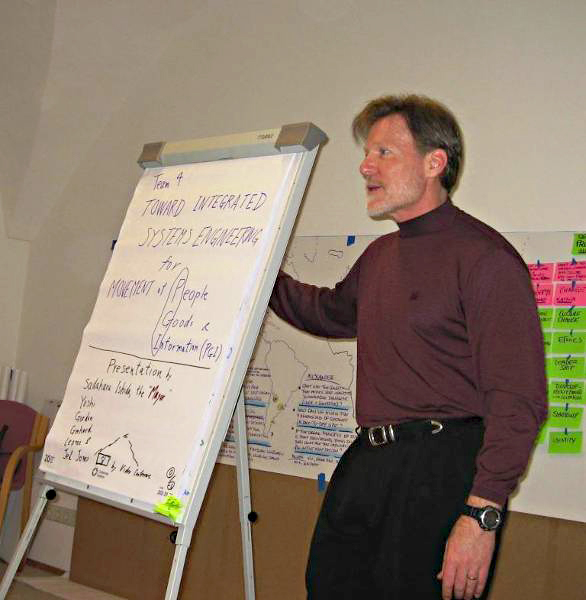
Gary Metcalf, , Proceedings of the IFSR Conversations 2010, Pernegg, Austria
Looking back at Pernegg 2010, Gary Metcalf (USA), Gerhard Chroust (Austria)…7- Photos from Fuschl 2008…9
- List of Participants…10
-
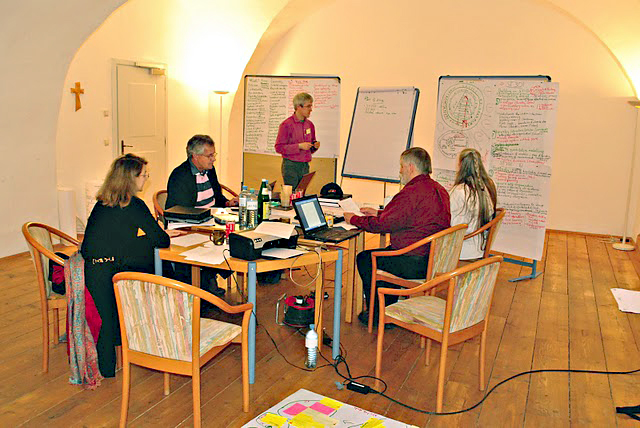
Team 1: Systems Thinkers Think About Systems Education Under The April 2010 (Volcanic Ash), Proceedings of the IFSR Conversations 2010, Pernegg, Austria
Clouds Of Austria
Team 1: Systems Thinkers Think About Systems Education Under The April 2010 (Volcanic Ash) Clouds Of Austria…11 - Team 2: The Science of Service Systems…20
-
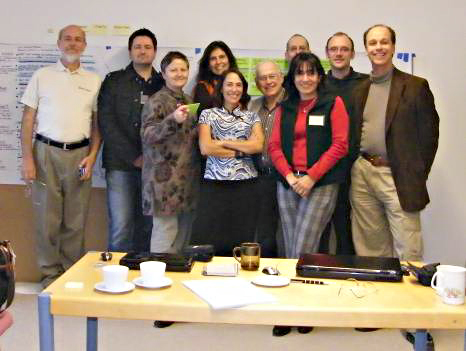
Team 3 Photo: Learning Systems for Sustainability, Proceedings of the IFSR Conversations 2010, Pernegg, Austria
Team 3: Learning Systems for Sustainability…27- A Sense of Syntony: The Evolutionary Aesthetics of Consciousness-driven Emergence, Alexander Laszlo…39
- Two Types Of Questions, Enrique G. Herrscher…40
- Risks and Opportunities of Learning for Sustainability, Victoria Haro…44
- Integral Sustainovation™ Model, Regina Rowland…49
- From Systems Thinking to Systems Being: The Embodiment of Evolutionary Leadership, Kathia Castro Laszlo…….51
- Global Learning Systems For Sustainability, Helmut K. Loeckenhoff…52
- Radical Innovations embedded in Enabling, Thomas Fundneider…56
- Mobile Interactive Information System for Learning based on Sustainability, Susana Isabel Herrera…57
-
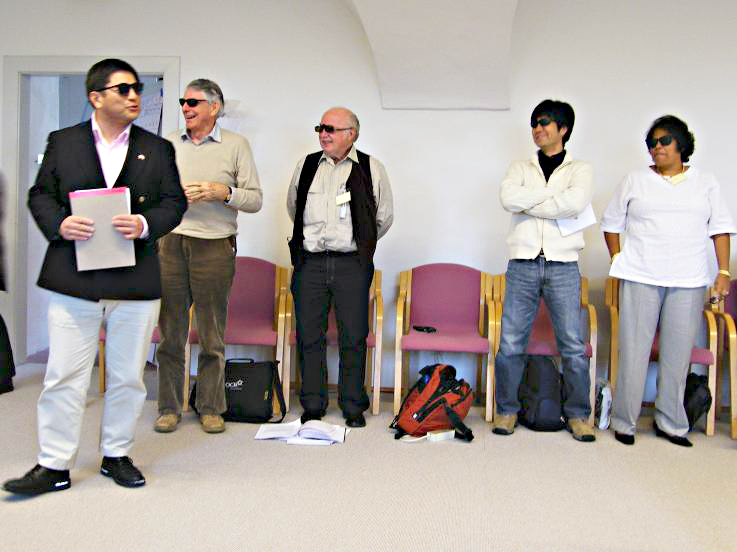
Team 4 members: Towards Integrative Systems Engineering: A Case Study Derived From Movement Of People, Goods And Information, Proceedings of the IFSR Conversations 2010, Pernegg, Austria
Team 4: Towards Integrative Systems Engineering: A Case Study Derived From Movement Of People, Goods And Informatio…59 - Appendix: What is the IFSR?…74
The aim of the Fifteenth IFSR Conversation in 2010, held in Kloster Pernegg, Austria in April 2010, was to continue the tradition that had been established in 1980, but with a renewed focus on coordination between the participating teams. The overarching theme for the conversation was how to support and disseminate systems research and education. The deliberations the 4 teams supported the over-all theme in different ways
- systems education and curricula
- learning sustainability of systems
- linking systems thinking to service systems
- system thinking in systems engineering.
The Conversation was able to build on previous and ongoing work within the member organizations of the IFSR. The outcome of this Conversation, while at a high conceptual level, also supports and encourages further practical applications through individual member activities.
The Conversations essentially followed the successful scheme used in earlier Fuschl Conversations as devised by Bela H. Banathy. 28 renowned systems scientists and systems practitioners from 9 countries took part in this 5-day cooperative effort. The outcome of the conversation is summarized in 4 team reports plus several contributed papers. A short description of the IFSR’s activities closes the proceedings.
Institute for Systems Engineering and Automation
www.sea.uni-linz.ac.at
ISBN 3-978-457-28-8
Proceedings of the IFSR Conversations 2010, Pernegg, Austria

